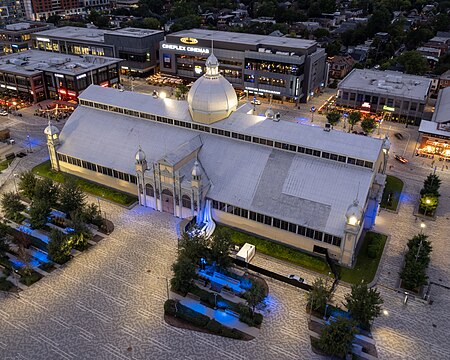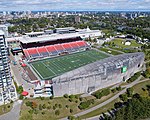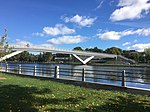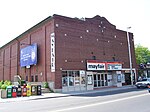Aberdeen Pavilion

The Aberdeen Pavilion (Pavillon Aberdeen in French) is an exhibition hall in Ottawa, Ontario, Canada. Overlooking the Rideau Canal, it is located in Lansdowne Park, Ottawa's historic fairgrounds. For many years, the building was known as the "Cattle Castle", due to its use for the Central Canada Exhibition's agricultural exhibits and shows. It is the last surviving Canadian example of what was once a common form of Victorian exhibition hall, and was designated a National Historic Site of Canada in 1983.It is one of the oldest surviving indoor ice hockey venues in the world, although it is no longer used for ice hockey. It is the oldest surviving venue in which the Stanley Cup was contested, having hosted Stanley Cup challenge matches in 1904 between the Ottawa Hockey Club and challengers.
Excerpt from the Wikipedia article Aberdeen Pavilion (License: CC BY-SA 3.0, Authors, Images).Aberdeen Pavilion
Exhibition Way, (Old) Ottawa Capital
Geographical coordinates (GPS) Address Phone number External links Nearby Places Show on map
Geographical coordinates (GPS)
| Latitude | Longitude |
|---|---|
| N 45.4001 ° | E -75.6828 ° |
Address
Aberdeen Pavilion
Exhibition Way 1000
K1S 5J3 (Old) Ottawa, Capital
Ontario, Canada
Open on Google Maps









